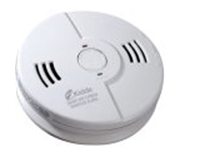Five Tragedies in the Last Five Days
Carbon Monoxide Poisonings — Again!
I just came up with these five news items. All of them took place within the past five days.
1. New York –Officials investigating a carbon monoxide leak that killed one person and hospitalized more than two dozen people at a New York mall are focusing on the heating system.
2. Maine — Twenty-one people suffered carbon monoxide poisoning and seven of them were hospitalized following an incident early Sunday afternoon at a Route 1 time-share resort that the fire chief said was not equipped with carbon monoxide detectors.
3. New Hampshire —Three adults died and a fourth person was hospitalized after a carbon monoxide poisoning inside a home in Plaistow, N.H., fire officials said on Tuesday. Someone had removed the batteries from the victims’ detector
4. Wisconsin —Eight adults and five children were taken to the hospital for carbon monoxide poisoning in Trempealeau County. Initial investigation showed a charcoal grill was being used to heat the home in the kitchen area.
5. Utah –A propane heater appears to have caused the death of a Utah father and his teenage son, who were poisoned by carbon monoxide while camping in a fishing hut.
We can’t have too many warnings!
I wrote about carbon monoxide poisoning just last month, but apparently we can’t get too many reminders. The three essentials:
Have a working carbon monoxide detector in your home.
Don’t use open fires for heating. This includes charcoal fires or propane heaters, which were apparently the cause of two of the above incidents.
Keep flues and exhaust vents clear of snow and debris.
If you still don’t have a carbon monoxide detector, click here to go directly to my list of the five most popular alarms, and then get what you need.
Please, don’t waste any time on this. It clearly is a matter of life and death.
Virginia
Your Emergency Plan Guide Team
P.S. Please forward this message to any friends who are experiencing particularly cold weather. You’d think CO Alarms would be obvious emergency prevention devices, but apparently not!
